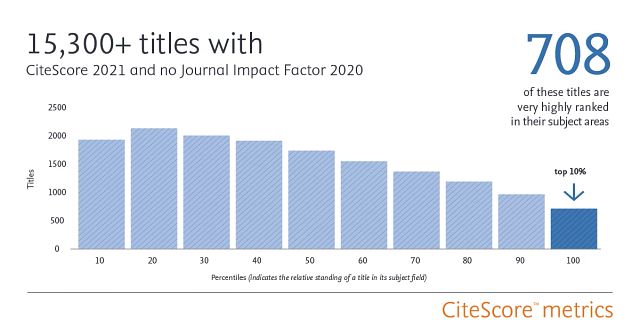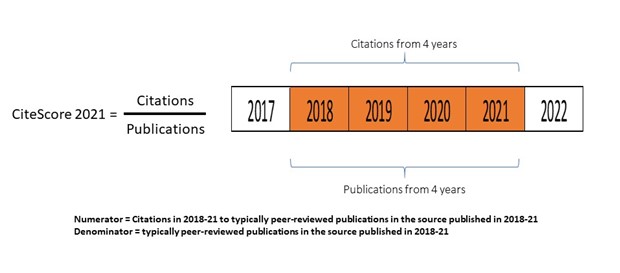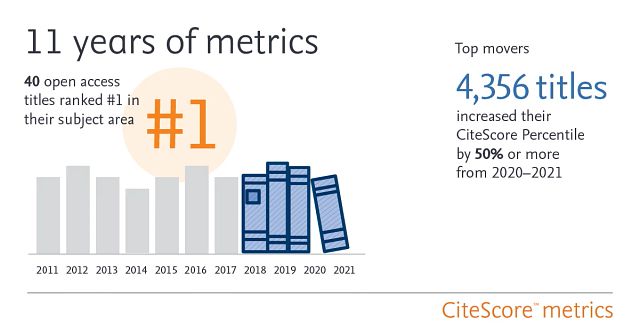CiteScore 2021 value are now live!
CiteScore 2021 values are now available in Scopus!
CiteScore helps researchers to determine which serial title to read, where to publish their research, and to showcase their research outputs.
See CiteScore 2021 values here.
There are over 15,000 titles which have a CiteScore 2021 but no Impact Factor. Of these 15,000+ titles, 708 of the titles are very highly ranked (in the top 10%) of their subject area.
CiteScore 2021 methodology
CiteScore 2021 data is calculated using the same methodology as CiteScore 2020.
In 2020, an enhanced CiteScore methodology was introduced. The CiteScore methodology better reflects citation impact of a journal’s research-based contributions with greater stability, consistency in the time periods used, and remains comprehensive, current, clear, and free. It was developed by the ICSR (International Center for the Study of Research) team, based on extensive market research and leverages the inherent weaknesses of the JIF as a journal-level citation metric.
- Comprehensive: CiteScore is available for all serial titles, not just journals. More than 26,000 titles are included (13,000 more than receive a Journal Impact Factor)
- Current: The CiteScore Tracker is updated monthly. New titles in Scopus typically receive CiteScore metrics the year after they are included in Scopus.
- Clear: (transparent, simple and easy to understand): CiteScore offers complete transparency of the underlying data, as opposed to the opacity of JIF. Anyone can validate a CiteScore value by clicking into the numerator (citations) and denominator (documents).
- Free: Unfettered access (for Scopus subscribers and non-subscribers) to CiteScore imposes no barriers to adoption.
CiteScore now considers 11 years of metrics with 40 open access journals ranked in first place in their respective subject areas. From 2020 to 2021 more than 4,300 titles increased their CiteScore Percentile by 50% or more!
Responsible Use of Metrics:
Elsevier and Scopus support a responsible use of metrics. For more information, please see the following resources:
- Advancing responsible research assessment: Elsevier signs Declaration on Research Assessment
- Elsevier endorses Leiden Manifesto to guide its development of improved research evaluation
- The mission of the International Center for the Study of Research and Elsevier’s commitment to responsible research evaluation




